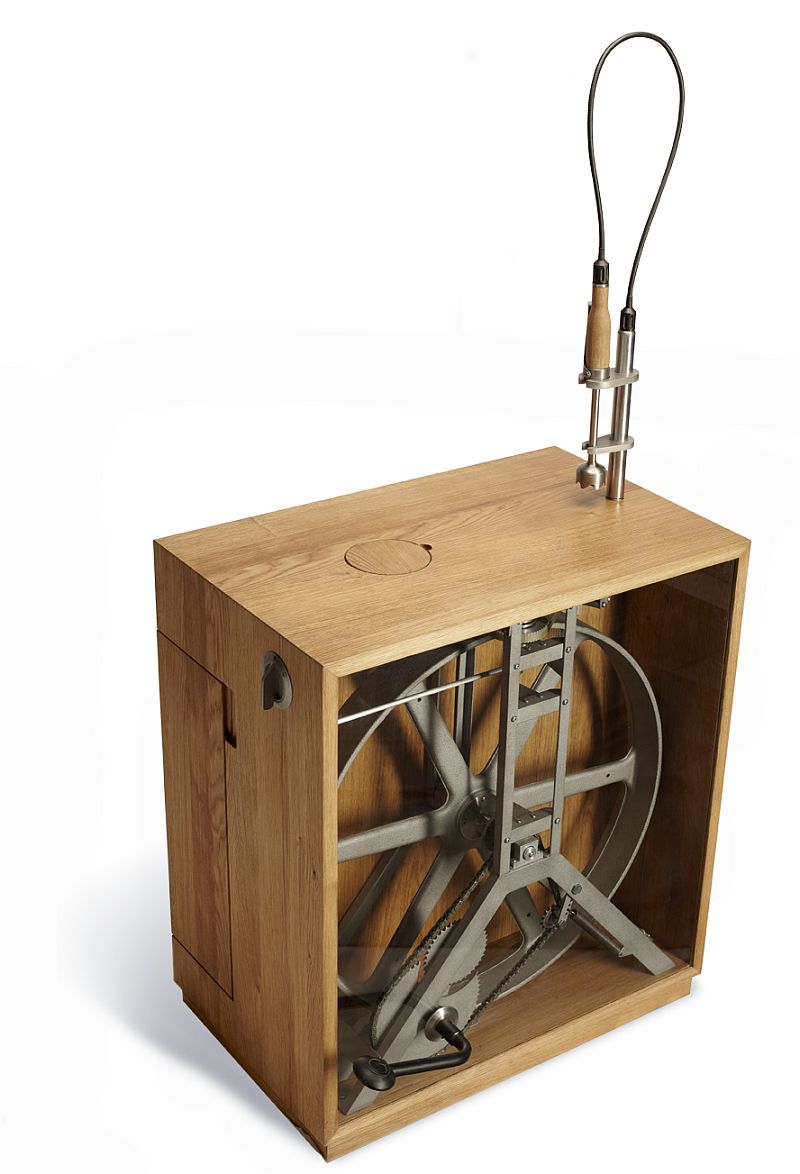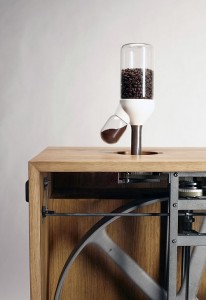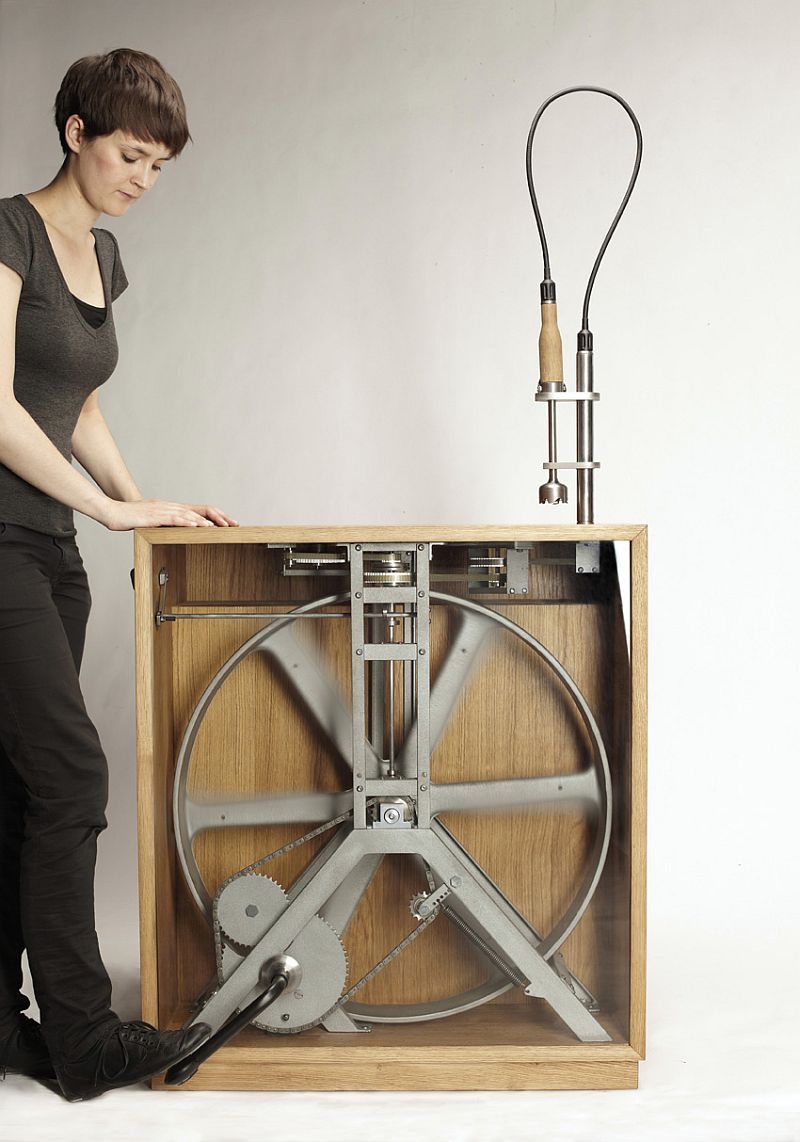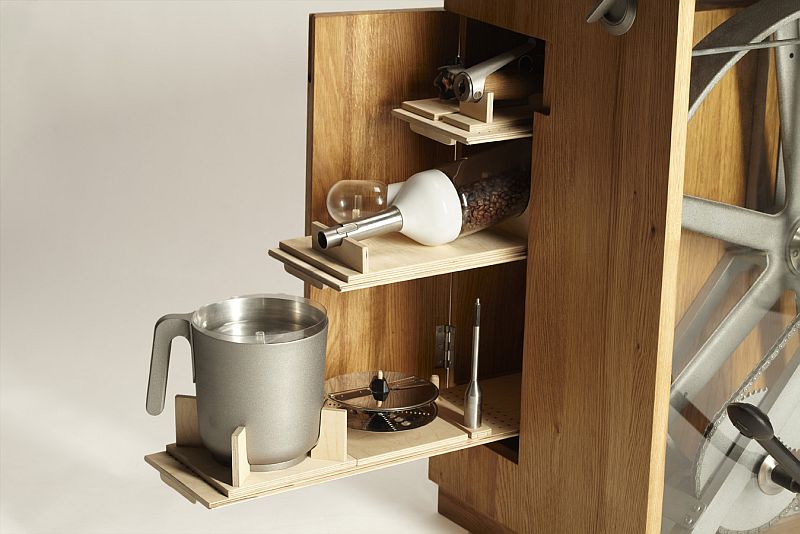
When we visited the "Summaery" exhibition at Bauhaus Uni Weimar one object stood out amongst all the others.
Sadly, at that point we were asked not to say too much about it; for reasons all designers will understand.
But now we can.
R2B2 by Christoph Thetard is well on it's way to being our "Design of the Year", and having caught up with Christoph Thetard at Designers' Open in Leipzig we have to say that the industry could well use a few more designers with his approach.
But more on Christoph later.
R2B2 is currently a concept - not a product. But we're confident that will soon change.
For his final year project at Bauhaus Weimar Christoph concerned himself with sustainability and principally the problem that "green" electricity still powers electrical goods: Not only are these resource intensive in their production but the problem of electronic waste is one that is both increasing and for which we have no real solutions.
Christoph's approach is to remove the electricity out of those systems where it is not necessary - a wonderfully simple, obvious, yet brave approach.
The heart of R2B2 is fly wheel powered by a pedal. The user "revs up" the fly wheel with the pedal and the resulting mechanical energy can power a range of appliances; currently a coffee grinder, hand blender and food processor.

With the fly wheel running at 400 rpm R2B2 can store enough energy to provide the equivalent of 350 watt for 1 to 1.5 minutes.
More than enough time to grind some coffee, chop celery or beat egg whites.
Fly wheel driven devices are not new, their use just having been superseded by a blind electrification of everyday products.
R2B2 contains technology that makes the renewed use of fly wheels in everyday domestic situations not only possible and attractive, but also desirable.
R2B2 is still in development, but we genuinely hope that in the not to distant future we can report a commercial version.
The commercial version will almost certainly not have the rustic charm of the current prototype, but we can accept that when the technology helps reduce our dependency on electricity and so allow us to head towards a more sustainable future.
As we say, we won't forget the moment we first saw R2B2 in Weimar, because something went "click" and we suddenly started to question a whole load of things that until that point we had taken for granted.
Which is surely one of the principle features of genuinely good, innovative industrial design.
More details can be found at http://christoph-thetard.de/

